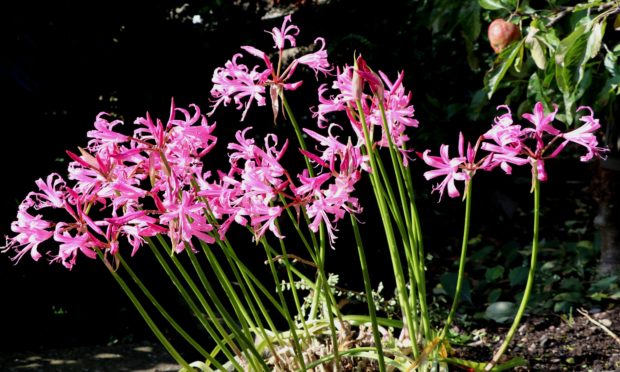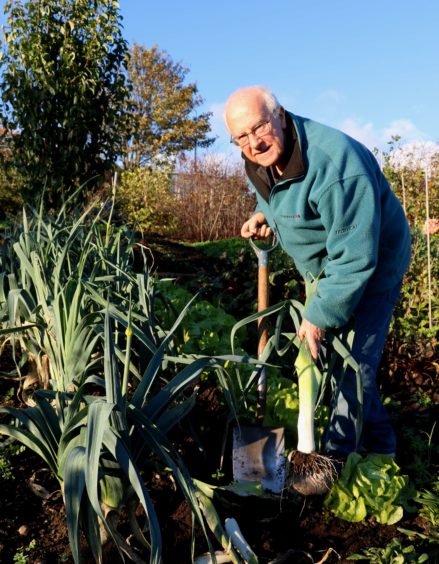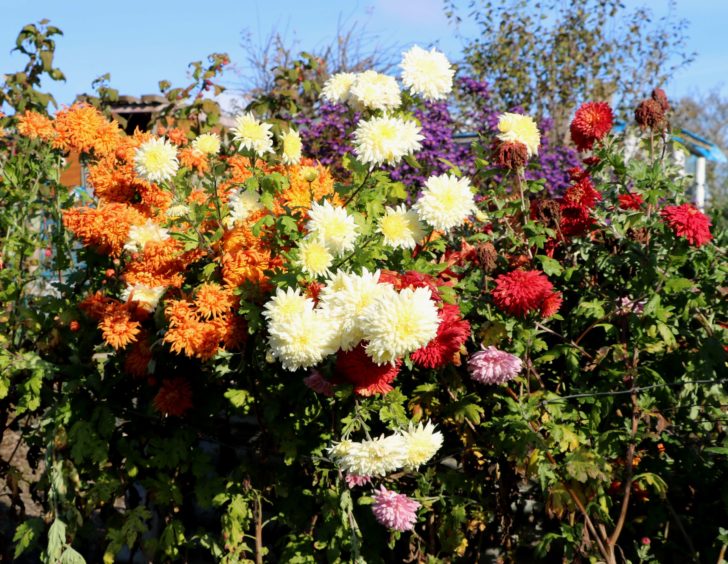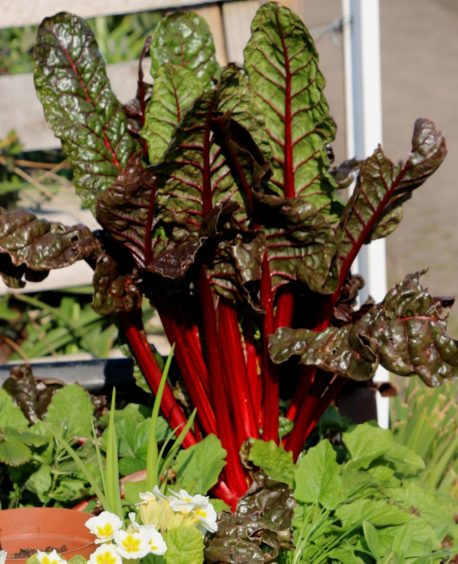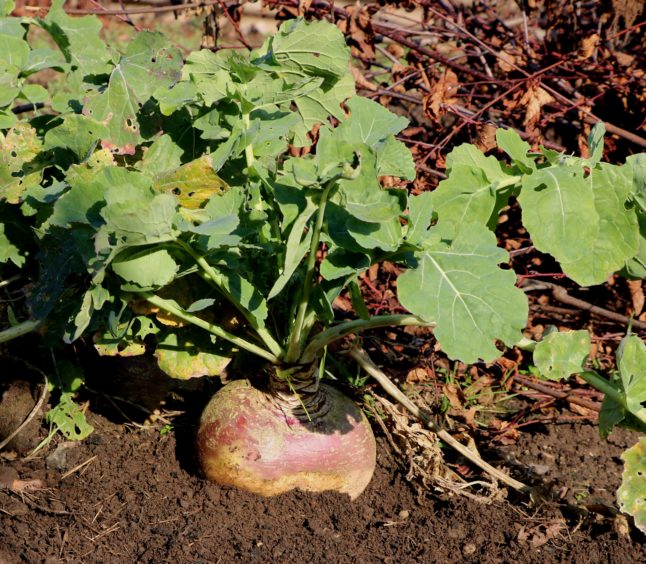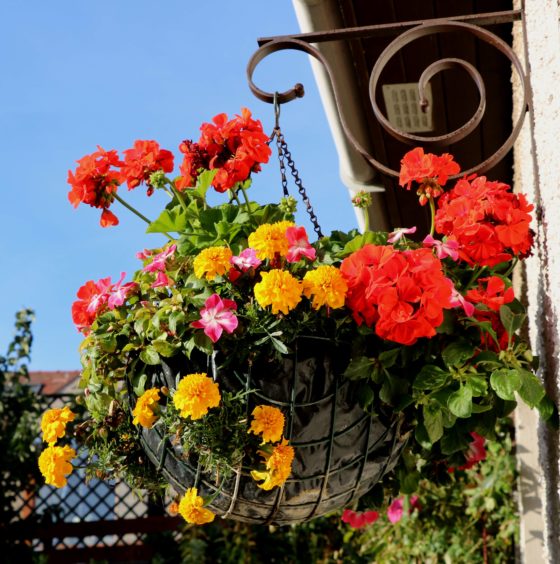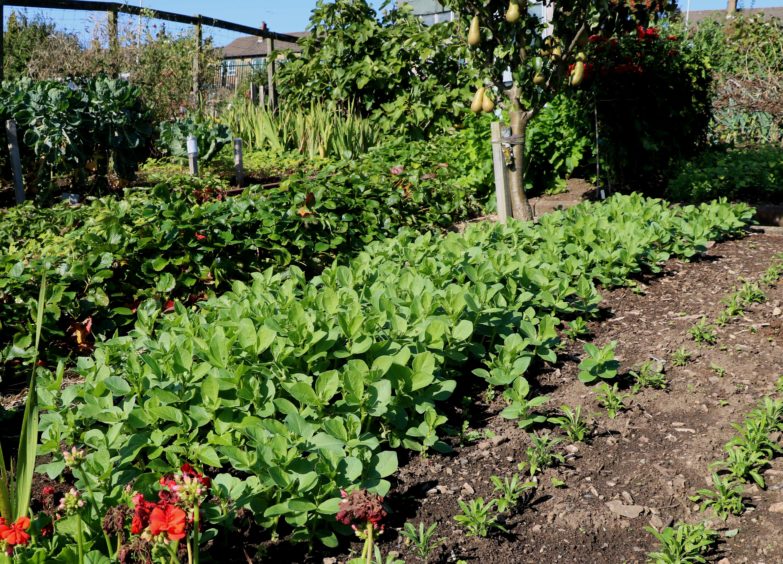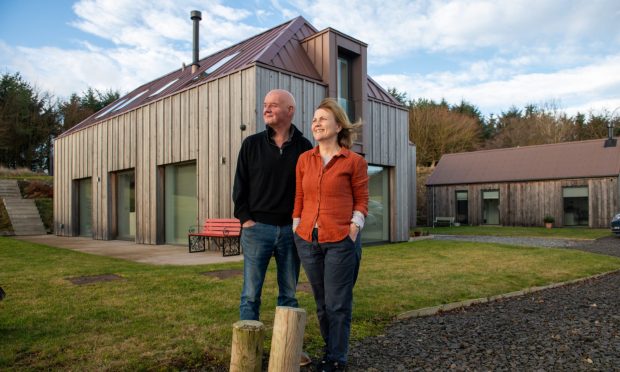With autumn now almost past, colder weather with frost and snow will most likely be arriving very soon.
We still hope for another mild winter, but we have had quite a few lately and word on the street (allotment) is favouring a return to that one-off bad winter like in 2010.
Time will tell, but while we wait there are a few wee jobs we can get on with.
I always set myself a target of trying to get all my winter digging completed by the end of the year, and leaving the surface rough allowing frost to penetrate the ground and break up clods so I get a friable seedbed surface for spring sowing and planting.
There will be compost to spread before digging commences, but you need to have your rotation worked out to make sure the heavy feeders, (peas. beans, onions, pumpkins and courgettes) get the most compost and the root crops don’t get any otherwise forking is likely.
Areas sown down with green manure crops can get dug over last, or if tares or field beans were used they can wait till near end of winter.
These leafy crops will prevent nutrients getting washed away in winter rains, but then once they decay they will release these nutrients for the next crop.
Herbaceous plants that have been growing in a clump for several years are best divided up and the strongest roots with good crowns replanted after adding some compost to the soil.
Late autumn to early winter is a good time for this task.
The dormant season is also the best time to carry out any replacement planting of trees, shrubs, roses and fruit bushes, but choose a day when the soil surface is dry enough to walk on.
With existing trees check any stakes and ties that may need adjusting or removal once the tree is well established.
During winter when snow or frost puts an end to working with the soil, we can always find a pruning task with roses, fruit trees and bushes, grape vines, and figs.
Autumn raspberries get the whole canes removed to ground level, but summer fruiting ones only have the old fruiting canes removed and new canes tied in to the support wires.
If you are on an allotment site, and have a shredding machine it can shred all the pruning so the resultant waste can be put back on the plot as a mulch, put onto paths, or added to the compost heap.
Repairs to fences, paths, gates, sheds and greenhouses can all be tackled when access to the soil is limited, and this is also a good time to give the greenhouse glass a good wash both inside and outside.
However crop harvesting will continue no matter the weather as we all try to be self sufficient over most of the year so the plot will still have plenty, swedes, sprouts, kale, winter cabbage, leeks, Swiss chard, parsnips and maybe even a cauliflower.
I normally have plenty beetroot left in the ground over winter as our recent mild winters have allowed them to remain unharmed, but this year the wet summer has not been to their liking and many roots have just given up.
This year however has been brilliant for leafy plants and I still have plenty of lettuce and spring onions in the ground.
The poor summer has held back ripening of grapes grown outdoors and my two vines of Regent and Rondo just gave up.
All the bunches just shrivelled up long before they had a chance to ripen.
White grape Phoenix was a wee bit better, but Brant on my south facing wall gave me forty pounds of grapes with a specific gravity reading of 1080.
They are now in three demijohns, though I have added a wee bit of sugar for the yeast so I can get my 14% alcohol strength.
It is good to see the garden flowers a bit late but still trying to put on a show.
Fuchsia Mrs Popple is very reliable as it a large drift of the pink Nerines, but geraniums, border pinks, roses and chrysanthemums have all got plenty of flowers still on display.
Wee jobs to do this week
The last of the tomatoes have been picked and the grapes have now been eaten or are now fermenting in several demijohns, so tidy up the greenhouse and use the space to grow a few winter hardy salads or over winter a few geraniums and fuchsia and fig rooted cuttings.
These are not totally hardy so be prepared to put in a heater overnight if frost is forecast. Take the chance to give the glass a clean while the greenhouse is not packed with plants. Keep the fuchsias relatively dry.
